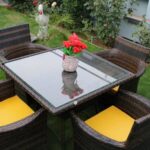In the realm of hospitality design, the art of creating welcoming and functional spaces relies heavily on the versatility of furniture. Hospitality furniture is not merely about aesthetics; it’s a dynamic and transformative element that adapts to the diverse needs of hotels, restaurants, bars, and other public spaces. In this blog, we’ll explore the multifaceted nature of hospitality furniture, unveiling its ability to enhance comfort, facilitate social interactions, and contribute to the overall ambiance of diverse environments.
Understanding the Essence of Hospitality Furniture:
-
Functionality Beyond Form: Hospitality furniture goes beyond being visually appealing; it’s designed with functionality at its core. Whether it’s the lobby of a hotel, a restaurant dining area, or the lounge in a bar, each piece is carefully selected and placed to serve a specific purpose. From comfortable seating to practical tables, every element is chosen to enhance the overall functionality of the space.
-
Adaptable Designs: The versatility of hospitality furniture lies in its adaptable designs. Furniture in these settings needs to cater to a wide range of scenarios – from formal events to casual gatherings. Adaptable designs ensure that the same space can seamlessly transform to accommodate different needs, providing a dynamic and versatile environment.
Versatility in Hotel Settings:
-
Lobby Seating: Creating a Welcoming Ambiance: The hotel lobby is the first point of contact for guests, and the furniture chosen for this space plays a crucial role in setting the tone. Versatile seating options, such as modular sofas and lounge chairs, create a welcoming ambiance. The adaptability of these pieces allows for the easy reconfiguration of the lobby space for events, conferences, or casual gatherings.
-
Guest Room Furnishings: Balancing Comfort and Style: Hospitality furniture in guest rooms must strike a delicate balance between comfort and style. Versatile pieces, such as multifunctional bedside tables or ottomans with hidden storage, maximize space and functionality. The adaptability of furnishings in guest rooms contributes to a comfortable and personalized experience for each guest.
-
Conference and Meeting Spaces: Flexibility in Design: Conference rooms and meeting spaces demand furniture that can adapt to various setups. Modular tables, stackable chairs, and multimedia-friendly furnishings cater to the diverse needs of business events. The versatility of these pieces ensures that the space can be easily transformed from a formal boardroom to a collaborative workspace.
Versatility in Restaurant Environments:
-
Dining Tables and Chairs: Flexibility for Various Occasions: Restaurants, with their diverse clientele and events, require furniture that can adapt to different occasions. From intimate dinners to large gatherings, the versatility of dining tables and chairs is evident. Foldable tables, adjustable seating arrangements, and modular furniture allow restaurants to optimize space and accommodate varying group sizes.
-
Outdoor Seating: Adapting to Al Fresco Dining: For restaurants with outdoor spaces, the versatility of furniture extends to withstanding different weather conditions. Weather-resistant materials, stackable chairs, and foldable tables provide flexibility in arranging outdoor seating. This adaptability ensures that patrons can enjoy al fresco dining comfortably in various seasons.
-
Bar and Lounge Areas: Creating Dynamic Social Spaces: Bars and lounges thrive on creating dynamic social spaces. Hospitality furniture in these areas is chosen for its versatility in fostering social interactions. High tables with bar stools, lounge seating arrangements, and adaptable furniture layouts contribute to the creation of vibrant and dynamic settings.
Versatility in Bar Settings:
-
Bar Stools: Dynamic Seating for Socializing: Bar settings, whether in hotels or standalone establishments, often feature bar stools as a primary seating option. The versatility of bar stools lies in their ability to accommodate patrons at different heights, creating a dynamic and inclusive environment. Swivel mechanisms, adjustable heights, and comfortable designs enhance the overall experience.
-
High Tables: Casual and Social Spaces: High tables in bars and pubs serve as casual and social spaces. Their versatility allows patrons to stand, sit on bar stools, or gather around for a more communal experience. The adaptability of high tables contributes to the creation of a relaxed and interactive atmosphere.
Versatility in Outdoor Spaces:
-
Poolside Lounges: Comfortable Relaxation in the Sun: Hotels with outdoor pool areas leverage the versatility of poolside lounges. These pieces are designed for both comfort and durability, with weather-resistant materials and adjustable features. The adaptability of poolside furniture ensures that guests can relax and enjoy the sun in style.
-
Terrace and Patio Settings: Al Fresco Entertaining: Terraces and patios in hospitality settings are extensions of indoor spaces, designed for al fresco entertaining. Versatile outdoor furniture, including patio dining sets, lounge chairs, and umbrellas, allows these spaces to transition seamlessly from daytime relaxation to evening social gatherings.
Trends Driving Versatility in Hospitality Furniture:
-
Modular Furniture: Transforming Spaces Effortlessly: The rise of modular furniture in hospitality settings reflects the need for adaptability. Modular pieces, such as sectional sofas, allow for easy reconfiguration to suit different layouts and accommodate varying group sizes. This trend emphasizes the importance of furniture that can effortlessly transform spaces.
-
**Multifunction



